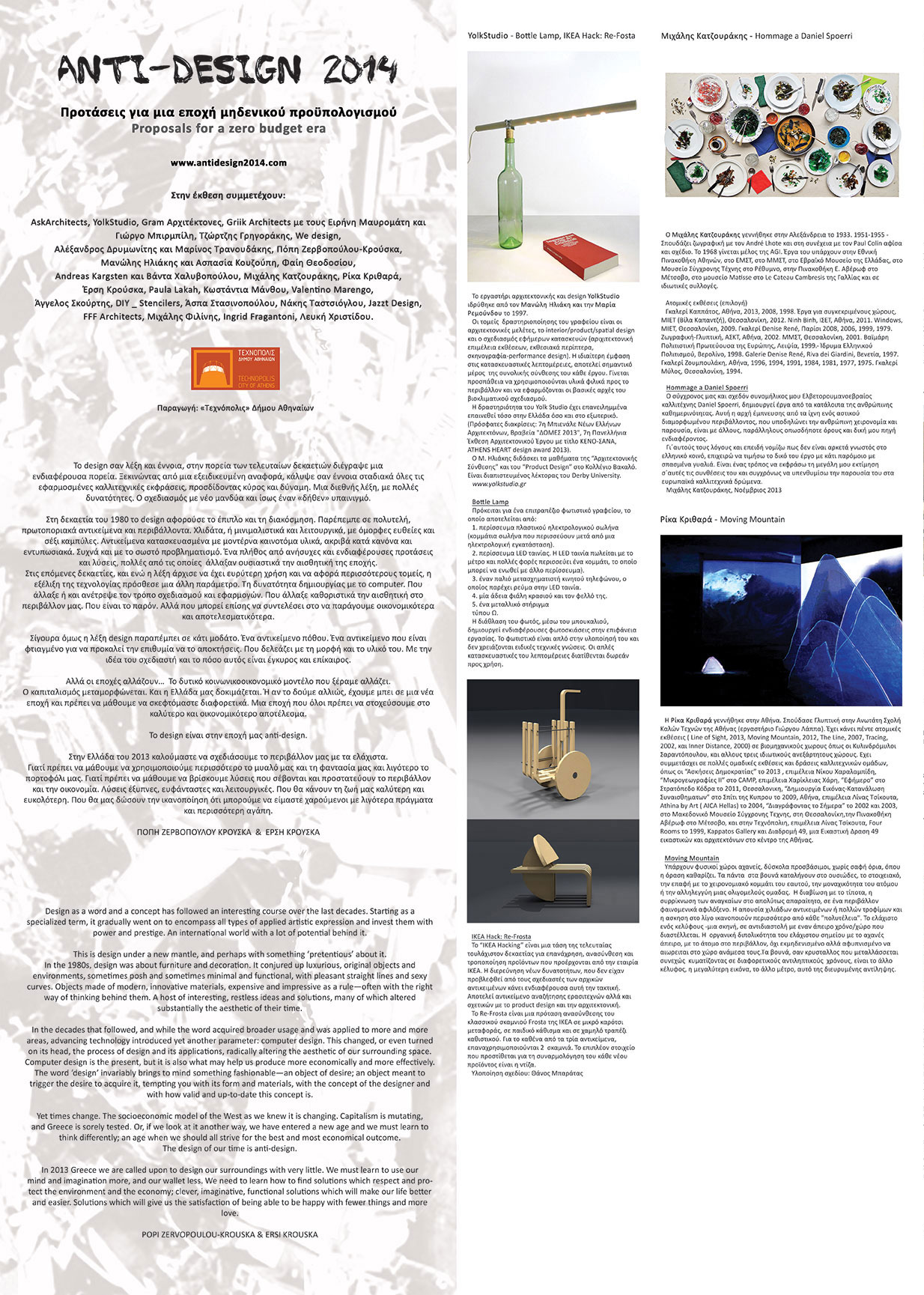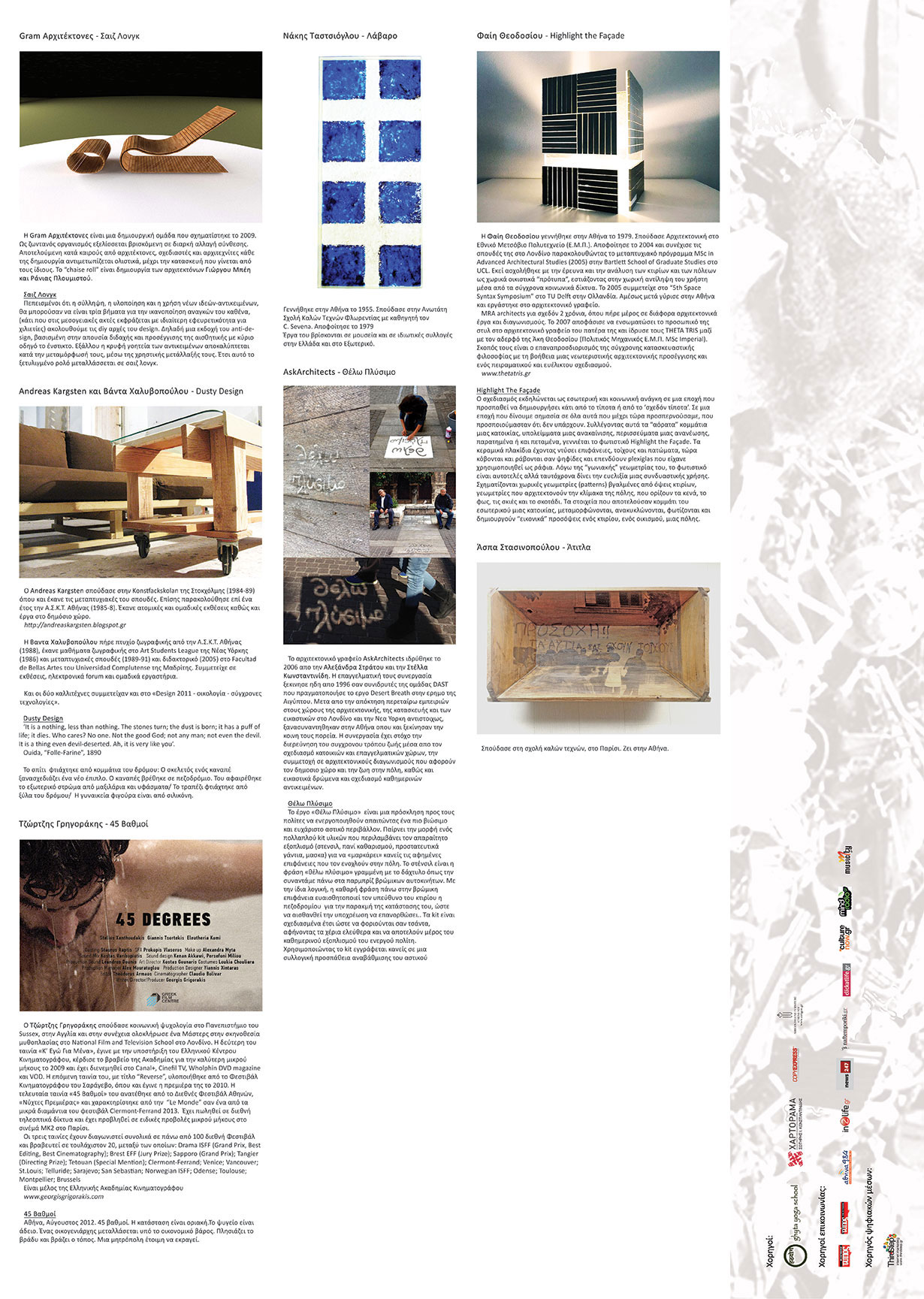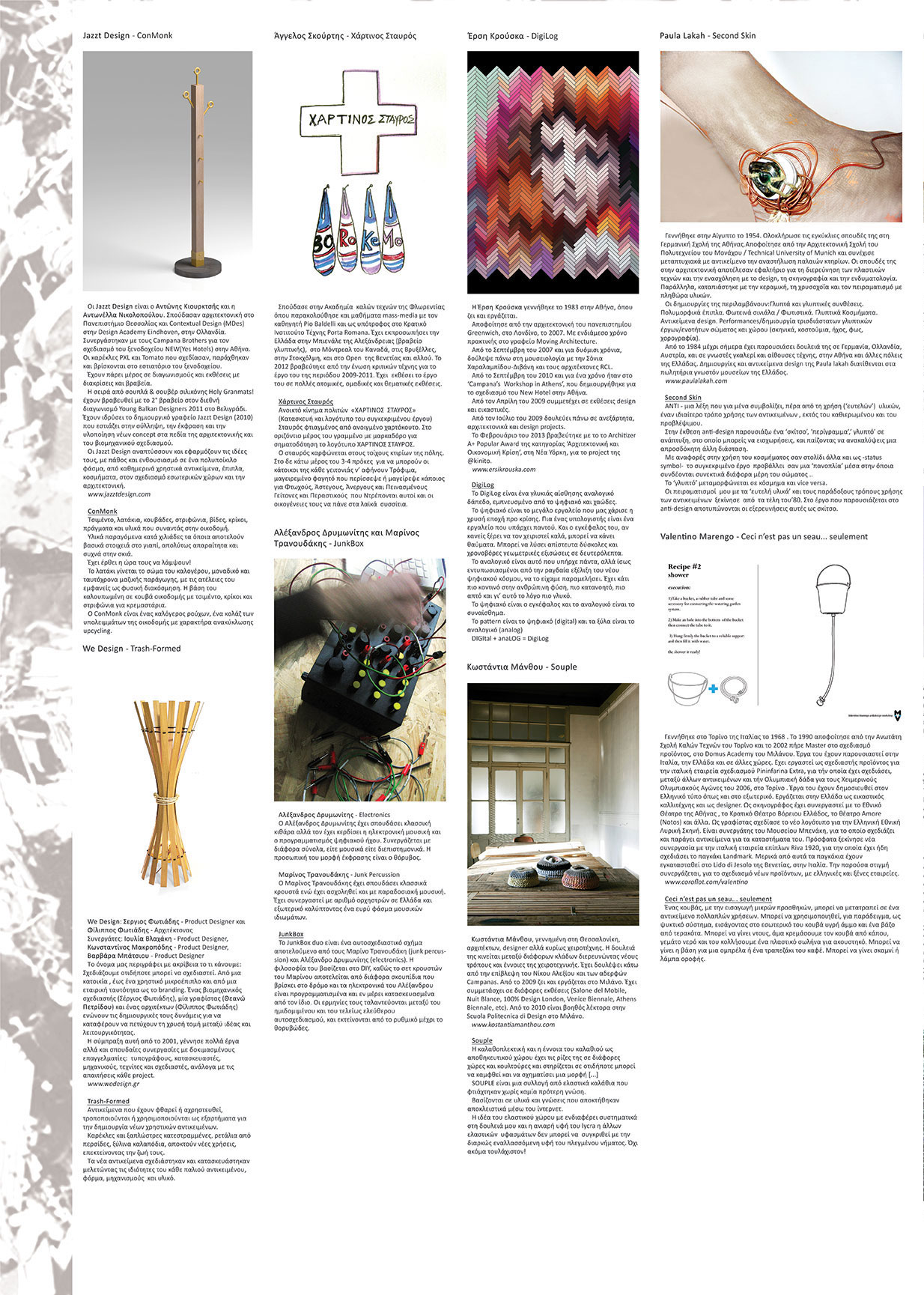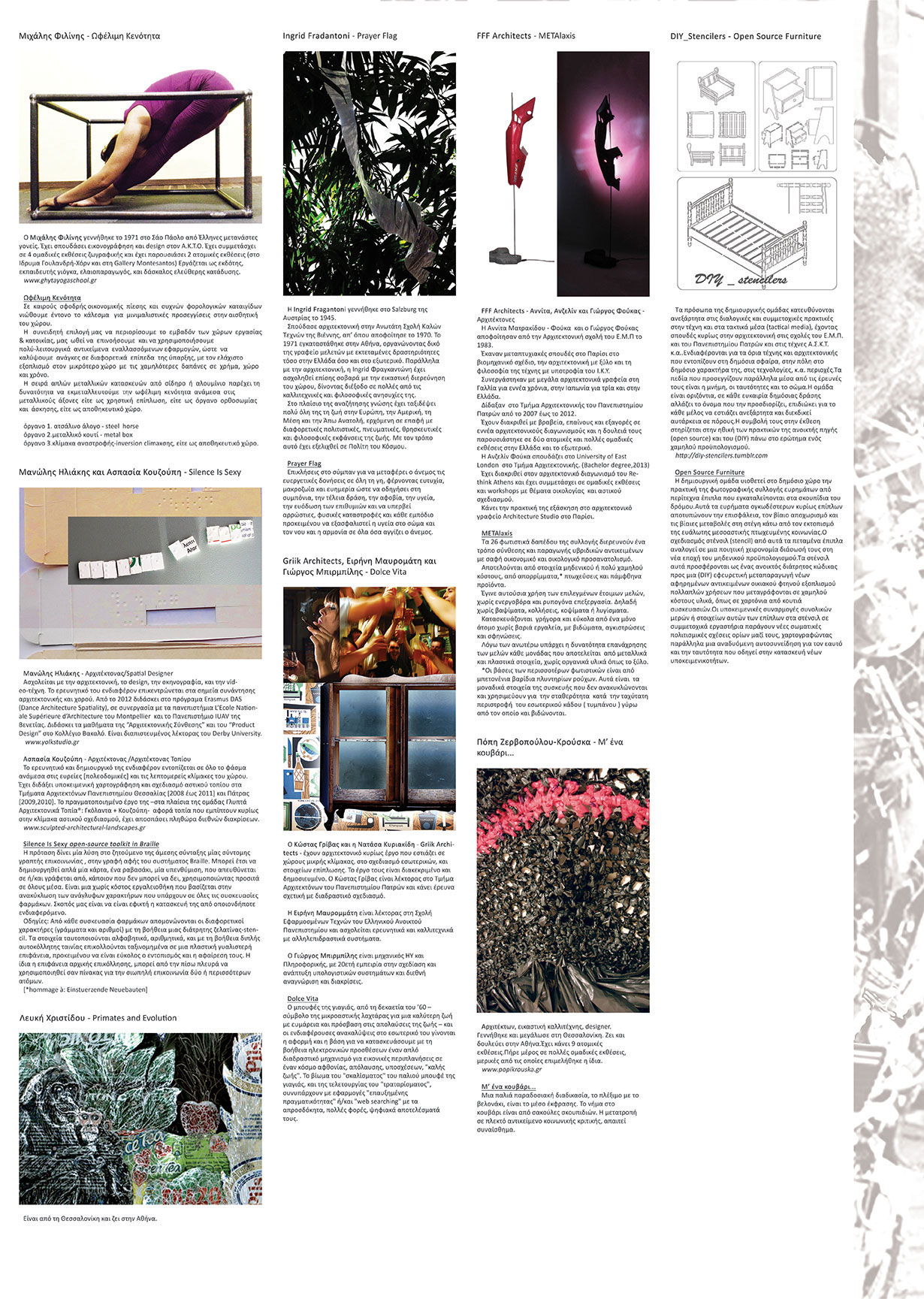Anti-Design 2014
Designing for a zero-budget era
Design as a word and a concept has followed an interesting course over the last decades. Starting as a specialized term, it gradually went on to encompass all types of applied artistic expression and invest them with power and prestige. An international word with a lot of potential behind it.
This is design under a new mantle, and perhaps with something ‘pretentious’ about it.
In the 1980s, design was about furniture and decoration. It conjured up luxurious, original objects and environments, sometimes posh and sometimes minimal and functional, with pleasant straight lines and sexy curves. Objects made of modern, innovative materials, expensive and impressive as a rule—often with the right way of thinking behind them. A host of interesting, restless ideas and solutions, many of which altered substantially the aesthetic of their time.
In the decades that followed, and while the word acquired broader usage and was applied to more and more areas, advancing technology introduced yet another parameter: computer design. This changed, or even turned on its head, the process of design and its applications, radically altering the aesthetic of our surrounding space. Computer design is the present, but it is also what may help us produce more economically and more effectively.
The word ‘design’ invariably brings to mind something fashionable—an object of desire; an object meant to trigger the desire to acquire it, tempting you with its form and materials, with the concept of the designer and with how valid and up-to-date this concept is.
Yet times change. The socioeconomic model of the West as we knew it is changing. Capitalism is mutating, and Greece is sorely tested. Or, if we look at it another way, we have entered a new age and we must learn to think differently; an age when we should all strive for the best and most economical outcome.
The design of our time is anti-design.
In 2013 Greece we are called upon to design our surroundings with very little. We must learn to use our mind and imagination more, and our wallet less. We need to learn how to find solutions which respect and protect the environment and the economy; clever, imaginative, functional solutions which will make our life better and easier. Solutions which will give us the satisfaction of being able to be happy with fewer things and more love.
Popi Zervopoulou-Krouska & Ersi Krouska
|



